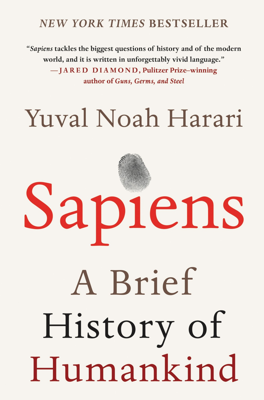The Capitalist Creed
The Role of Capitalism and Credit in Modern History
This chapter explores the profound impact of capitalism and credit on shaping modern history, emphasizing the concept of economic growth as a driving force behind several historical events, including European imperialism and the emergence of global financial systems. The narrative underlines the crucial role that trust in future economic prospects plays in sustaining the global economy, which primarily operates on credit – money that essentially represents people's trust in future economic growth.
The Mechanics of Credit
The story uses a detailed hypothetical scenario involving Samuel Greedy, a financier, and others in El Dorado, to illustrate how banks create credit and the concept of fractional reserve banking. In essence, banks can loan out significantly more money than they actually hold, a system that relies entirely on the trust of the bank's clients in its ability to pay back on demand. This system underpins much of modern economic activity but is vulnerable if that trust is ever broken en masse.
Capitalism's Growth and Ethical Challenges
Capitalism, painted primarily as a belief system akin to religion, is driven by the notion that societal and economic growth is inherently good. This belief has been both revolutionary and problematic. While it has promoted unprecedented economic growth through credit and industrial innovations, it has also led to moral dilemmas and exploitations such as the Atlantic slave trade and the poor conditions during the early Industrial Revolution. Such examples highlight the capitalist drive for profit often coming at a significant human cost.
The Double-Edged Sword of Free Markets
The chapter discusses the capitalist argument for minimal governmental interference in markets, suggesting that free markets are the most efficient at driving economic growth. However, this belief is critiqued by pointing out the historical and ongoing failures of unfettered markets that often lead to monopolies, poor working conditions, or outright exploitation when not appropriately regulated.
The Role of Capitalism in Imperialism
The development of European imperial ambitions is closely related to the rise of capitalist practices, particularly the use of credit to fund exploration and conquest. Entities like the British East India Company didn't just trade goods but also wielded enormous political and military power, essentially running countries as corporate enterprises with profitability as the primary goal, often at the expense of native populations and ethical considerations.
Modern Examples and Continuing Challenges
Looking at contemporary times, the narrative reflects on the ongoing consequences of capitalist practices, such as the 2008 financial crisis, which was partly attributed to the irresponsible extension of credit. Inequality remains a significant challenge as the global economy grows but often fails to distribute its rewards equitably, highlighting the persistent tension within capitalist systems between growth and fairness.
Conclusion on Capitalism's Impact
The chapter concludes with a somewhat ambivalent view of capitalism, recognizing its power in creating economic growth and fostering innovation but also cautioning against its excesses and the potential for significant harm if not wisely managed. The promise of capitalism to eventually bring prosperity to all is noted, yet it is met with a healthy skepticism about whether such an ideal can be achieved without significant reform and regulation to address its inherent inequalities and tendencies toward exploitation.
